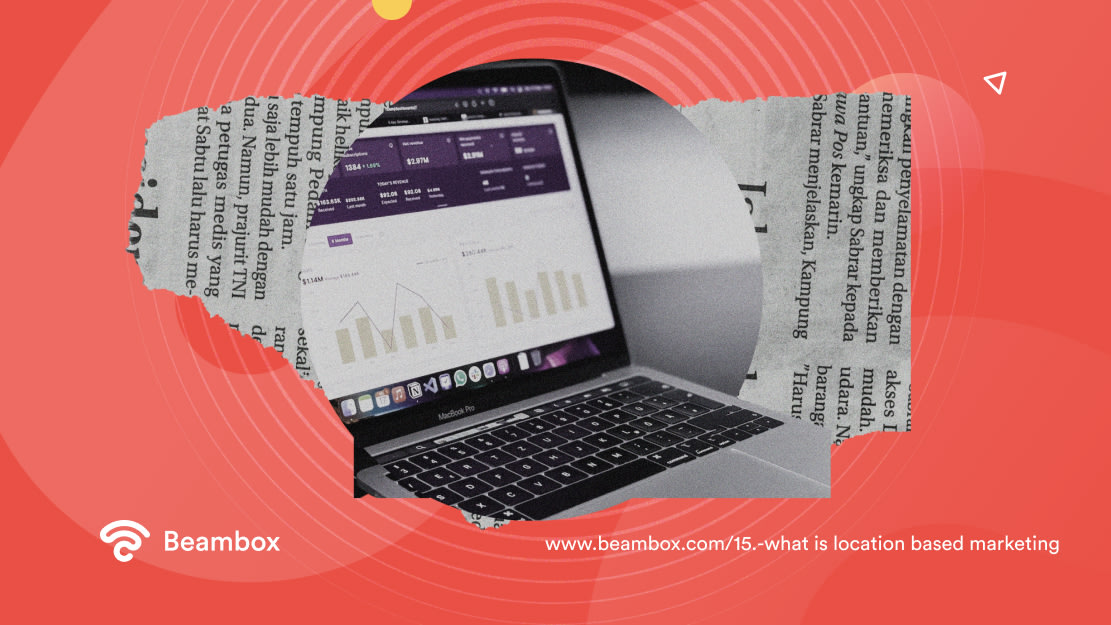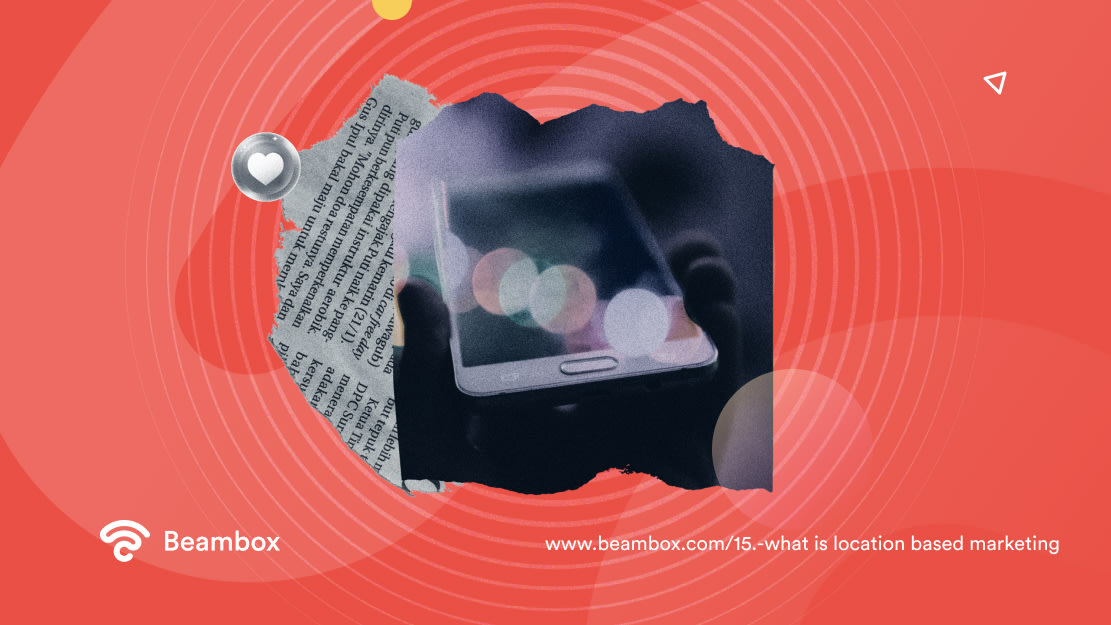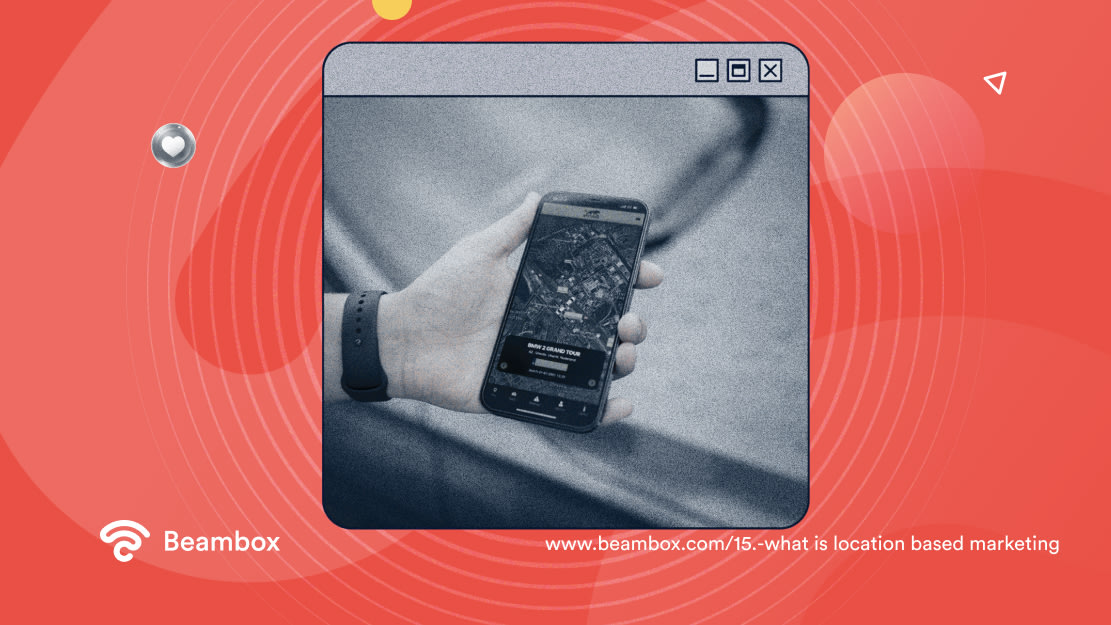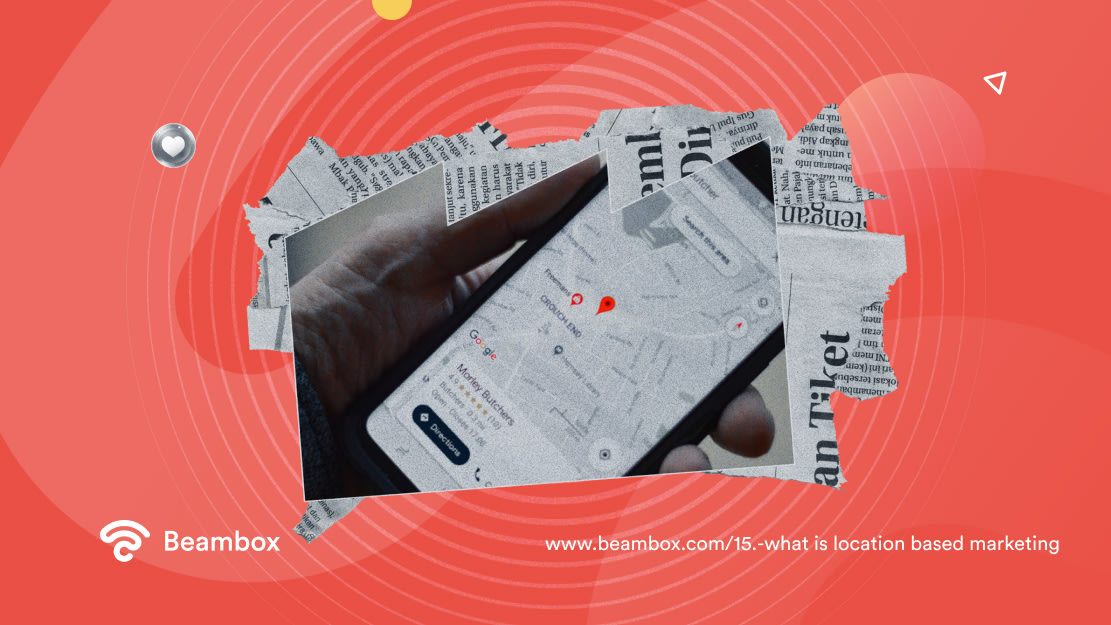If you’re asking yourself, “what is location based marketing?” you’re probably looking for a way to improve your marketing research. After all, marketing research is a laborious task. However, reaching a specific target audience is now relatively easy. This is because marketing audience reach strategies have broadened quite considerably. It is now doable to meet the end goal more effectively compared to traditional methods.
This involves the use of different strategies and various technologies to connect with their target audience. Due to this, organizations are taking advantage of this vast marketing transformation for their own benefits. One such technique is location based marketing, which is a favored strategy. Statistics suggest that approximately 90% of marketing teams prefer to use it. If you don’t know what location based marketing is, this guide will cover the basics.
Here is what you will learn:
- What is location based marketing, and why is it important?
- Location-based marketing examples
- The types of location based marketing
- The importance of mobile location based marketing to display targeted content
- Advantages and disadvantages of location based marketing

What Is Location Based Marketing?
Location based marketing is a game changer for marketers looking for ways to only advertise to a specific target audience. If you are wondering what is location based marketing, here is a detailed explanation.
Location based marketing is a strategy that marketers implement by targeting consumers based on their physical location. This is usually done by capturing the user’s location history, which includes current and past location, by tracking their GPS. With this location history information, marketers are able to analyze the frequent points of interest, such as restaurants, cinemas, etc.
After organizing and filtering all of this data, marketing teams use it to create targeted advertising campaigns. These advertisements are usually relevant and of interest to the audience because they are personalized promotions based on their preferences.
Since this is from the user’s location history, it has changed the way marketers can capture their target audience. It can improve the overall target audience marketing strategy, as this method aims to provide relevant recommendations for nearby businesses.
This approach has become increasingly popular among businesses. There are many factors that count towards the rising popularity of location based marketing. However, the primary reason is that it allows them to reach out only to interested customers.
Location Based Marketing Privacy Concern
Now that it is clear, you are probably wondering what is location based marketing’s privacy guidelines. Don’t worry; it is legal to track users. However, the organization must disclose all of their tracking procedures in the terms and conditions.
It is also important for organizations to obtain explicit consent from users before collecting and using their location data. Unfortunately, many app users are not aware of this privacy invasion. The reason is they agree to the terms and conditions without reading them. Keep your business reputation intact by being as transparent and straightforward as possible with your clients.

What Is the Importance of Location-Based Marketing?
Location-based marketing is important because it limits your advertisement scope to interested customers only. It provides them with relevant and personalized messages, most of them based on the user’s precise real-time location.
For example, if a customer is near a shop, location based marketing allows the business to send a promotional message. This message may persuade the customer to visit the store immediately.
The advantages of location-based marketing strategies are:
- Increased engagement, loyalty, and ultimately revenue for the organization.
- It also helps organizations understand their customers’ behavior and preferences.
- It enables them to improve their products and services.
- It results in cost savings because all advertisements are for interested customers only.
- It brings in customers who are closer to the business’s physical location.
3 Types of Location Based Marketing
There are different types of location based marketing. However, the three most important and commonly used are geotargeting, geofencing, and geoconquesting. Each of these types has its own usage and advantages. By their name, it is easy to determine the role these types play in location based marketing.

What Is Location Based Marketing: Geotargeting
Geotargeting is a type of location based marketing that involves targeting customers based on their geographic location. This is possible through various means, such as an IP address, GPS, or Wi-Fi signals. All of this makes it possible to gather the user’s personal details, such as their country, city, zip code, etc. With that information, it’s easier to track the user’s location.
By using geotargeting, businesses can send personalized and relevant messages to customers in a specific area. This increases the chances of conversion and customer engagement. This benefits not only the business but also the user. Each advertisement the user receives is relevant to their location history.
This prevents annoying unwanted advertisements, either through a message or a popup notification from an app.
Geolocation marketing is a powerful tool for businesses looking to target their audience effectively and increase their engagement with customers.
What Is Location Based Marketing: Geofencing
Geofencing is a type of location based marketing that involves setting up a virtual boundary around a specific area. This virtual boundary can be around a store sending targeted messages to customers who enter that boundary. This can be particularly effective for driving foot traffic and increasing sales as it allows proximity marketing.
This type of marketing strategy is possible with the help of GPS technology. It enables businesses to track the location of their customers in real-time.
Apart from businesses receiving foot traffic, customers are able to get notifications on sales, special offers, or other forms of advertising. If anything is of interest, it persuades the customer to head for that shop right away.
Geofencing can also gather data on customer behavior and preferences, allowing businesses to further personalize their marketing efforts.

What Is Location Based Marketing: Geoconquesting
Geoconquesting is a tactic to steal a competitor’s customers. Businesses can target customers currently located near their competitors’ stores and offer them incentives to visit their own store instead. Customers receive advertisements, such as push notifications or in-app ads.
This strategy can be especially useful for businesses looking to gain a competitive edge in crowded markets.
All of these location based marketing types have precisely the same goal and the implementation is identical. However, the purpose of these strategies is different, even though the technology used is the same.
Location Based Marketing Examples
Recognizing the different types of location based marketing is important for any business. However, a marketer must also understand the right time to implement a location based strategy. The best way to truly comprehend this is through various location based marketing examples.
What Is Location Based Marketing: Example of Geolocation
An example of geolocation marketing is the famous Google search engine. Google is able to target customers based on their location using their IP addresses. If you do a Google search for any business, its name will show available locations in your city.
Similarly, if you type in, for example, restaurants in Google Maps, the auto-suggest feature will bring up “restaurants near me”. By selecting this option, Google will determine your current location and list the locations of restaurants near you. Using that, this search engine is able to provide advertisements that are relevant to the user’s location. This location could be anything, either the city they are living in or businesses in close proximity.
What Is Location Based Marketing: Example of Geofencing
Customers located within a certain radius of a store may receive push notifications, about discounts or promotions by the business. This is to entice them to come in and shop.
Food delivery services serve as a good example of location-based marketing using geofencing. They target customers with ads of nearby restaurants, making it easier for them to order food from local establishments.
What Is Location Based Marketing: Example of Geoconquesting
An example of geoconquesting involves two businesses trying to steal each other’s customers by sending targeted promotions. If Shop A wants to gain a competitive edge over Shop B, he must implement a geoconquesting location-based marketing strategy. This will involve:
- Identifying the competitors areas
- Create an attractive offer.
- Set up a virtual boundary around Shop B to send targeted promotions.

How Does Location Based Mobile Marketing Work?
What is location based marketing, how does it work, and what advantages does it bring? All of these questions are fully explained in detail above, along with relevant real-life examples. The next question that usually arises is, “How does location based mobile marketing work
The basic tracking method involves getting a lock on the user’s position via GPS. From there, businesses get their location in real-time, and accessing their travel history. This is the usual practice, but it does not answer the question of “how”. How does location based mobile marketing actually work? How are the companies able to get a hold of the user’s location?
Apart from using a combination of technologies to capture a user’s location, companies also partner with mobile apps and websites. Due to the user’s consent, these applications and websites are legally able to obtain this data.
For example, in the terms and conditions, it is clearly mentioned that the application will track your location. Most of the time, app users don’t read this and accept whatever is written.
For this reason, these mobile targeting companies and websites store, collect, and sell location data. They then sell this to companies wanting to deliver targeted ads and promotions to users based on their location history.
What Is Location Based Marketing? Advantages and Disadvantages
The advantages of location based marketing are tremendous, making it 90% of marketers’ preferred marketing strategy.
- Location based marketing allows companies to reach out to potential customers in real-time and provide them with special offers.
- This leads to higher conversion rates and customer loyalty.
- Location based marketing not only captures the location of the user but it also helps businesses gather other valuable data. This data helps to improve future marketing campaigns.
- It increases foot traffic.
- It targets specific customers with ads according to their preferences based on their regular visits.
- Targeted campaigns result in an approximate 4.69 percent conversion rate.
Along with advantages, there are also certain disadvantages to using location based marketing.
- Some customers might view it as intrusive, which could harm the brand’s reputation.
- In the beginning businesses need to spend time and money on a significant amount of data collection and analysis.
- It can result in wrong location calculation leading to unwanted advertisements.
- There are concerns about privacy and data security, as the collection of personal information is being misused or compromised.
- Incorrect analysis may result in the wrong location-based services being implemented. This may not be effective for all types of businesses or industries.
- Users must agree to share their location data. If they disagree, location based marketing will not work for them.
Are you ready to capture the market by showing specific advertisements to targeted customers? If you don’t know what is location based marketing, you should consider going with Beambox. Beambox can boost your business by increasing sales and revenue through location based marketing and other targeted ad tools. Learn more and start growing your business.
Get Started With Free WiFi Marketing
Beambox helps businesses like yours grow with data capture, marketing automation and reputation management.
Sign up for 30 days free